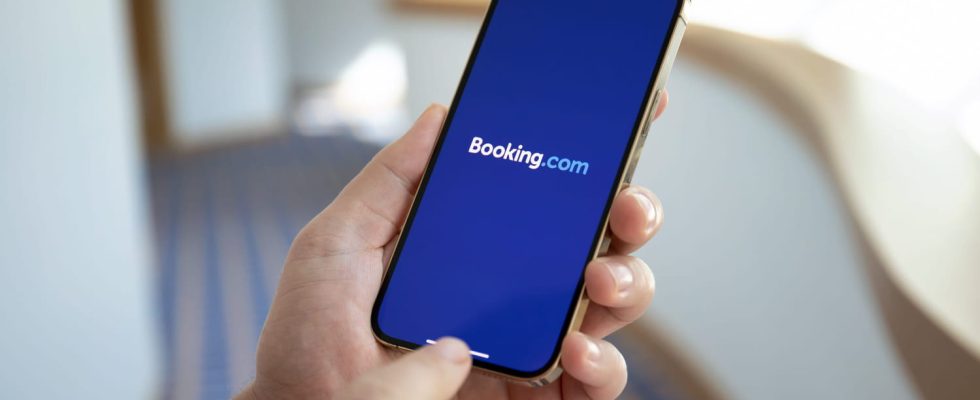If you are used to using the Booking application, you may sometimes receive messages from the platform. But among these notifications that seem formal, one of them should ring a bell.
In recent years, to book vacations and even weekends away from home, more and more people have the reflex to use online rental platforms, such as Booking, Airbnb or Abritel. Precisely, more than one in two French people make their reservations via these sitesaccording to one study by the Cetelem Observatory published in June 2021. But by dint of using them, even through their mobile applications, we miss scams, especially when they usurp the identity of the platforms and hotels that are registered on them. This is the mishap that a Spanish tourist recently experienced while using the Booking.com application.
A message that seems true on the surface
Although he had reserved three nights in a hotel in Kyoto, Japanthe traveler one day received a notification of the hotel establishment via the messaging of the Booking.com reservation application. The message then informs them that there is a problem with their reservation and that the payment that was made ultimately did not go through. So far, the information may be real, because a technical error could very well happen. Except that the subtlety of the scam is sometimes played out in the details. In this same message, the scammers asked the globetrotter to read the email that was sent to him separately, to his email address, and to repay for the reservation, otherwise it will be canceled.
In the rush, and although the tourist was initially aware of the trends in terms of scams since he works in the technology sector, he was unfortunately fooled. He entered his bank card details and made the payment a second time. “I had received an email that appeared to be from Booking, and since I had already received this message on the app, I didn’t question it. Just a moment after entering the payment information and seeing the debit on my card, I realized it was a scam”, he reported to the media elDiario.es. He was the victim of what is called phishing technique, or phishing in English, which consists of duping the Internet user to extract their personal information, and in this example also their money. This scenario is not the only one. In December 2022, a wave of scams operated by cyberhackers affected the reservation platform for several weeks.
How to recognize a scam on an online platform like Booking?
On its site, Booking.com gives certain tips to users, but also to hoteliers, to spot a phishing attempt. Here are the signs that should alert you:
- The tone used is urgent. “Phishing emails often try to create a sense of urgency. These can range from threats to suspend your account to emails regarding your financial situation.”
- Spelling mistakes and grammatical errors are presented. In general, “many errors or mixing multiple languages in the same email is a good clue to identify a phishing email.”
- The identity of the sender of the email. “Emails sent from Booking.com must always come from an account ending in ‘@booking.com’, regardless of the above.”
If you identify any of these signs, do not respond to the email or message received. The platform also advises its customers to reset their password for their email address, as well as their Booking.com account, in prevention. In the event of a phishing attack, it is also necessary to contact the platform within 24 hours to report a security issue.
